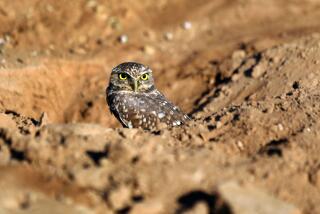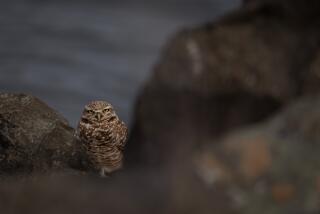Bad news for night owls. Their risk of early death is 10% higher than for early risers, study finds

- Share via
Night owls beware: A new study of mortality rates of nearly half a million people finds that individuals who strongly preferred to stay up late were more likely to be dead at the end of a six-and-a-half-year period.
The findings, described in the journal Chronobiology International, offer the first study linking mortality risk to night-owl sleep habits, according to the authors. The results could help researchers better understand another aspect of the role that circadian rhythms play in human health.
Scientists have long studied whether night owls are saddled with health impacts — some research has linked a preference for sleeping late to higher rates of diabetes, heart disease and obesity, among others. But little was known on whether there was a link between sleeping late and the ultimate outcome: an earlier death.
“We wanted to see whether this translated also into an increased risk of mortality and no one had done that before,” said lead author Kristen Knutson, an anthropologist at Northwestern University.
The researchers were able to study the health outcomes of 433,268 people from ages 38 to 73 using data from a cohort study called the UK Biobank Study. They sorted people by whether they were definite morning types (aka “morning larks”), definite evening types, moderate morning types or moderate evening types.
They compared the different types, adjusting for a range of factors including the study participants’ age, sleep duration and existing health problems. The results showed that by the end of 6.5 years, the definite evening types were about 10% more likely to have died than the definite morning types, Knutson said.
“What we found is that the night owls, the definite evening types, were the ones that were at increased risk of mortality compared to the definite morning types — and the middle groups really weren’t,” she said. “So it was really something about being a true evening type that was problematic.”
It’s unclear exactly why night owls are more likely to die than the early risers in this time period — and the study only established a correlation between the two, not cause and effect. But the researchers had some ideas.
“We think the problem is really when the night owl tries to live in a morning-lark world,” Knutson said. “So they want to be up late but they have to be up early for work and so the time that they’re doing things, like waking up or eating, is not at the correct time for them.”
That tension between an evening person’s preferred routine and the routine of their environment also tends to lead to more irregular schedules, she added.
“The mismatch between their internal biological clock and their behavior and environment is problematic, especially in the long run,” Knutson said.
For non-night owls, the scientist had this advice:
“Avoid becoming a night owl,” she said.
For definite night owls, the solution remains to be seen, the researchers said. Perhaps employers could adjust schedules within reason to accommodate evening people. Or perhaps there was some way to help night owls develop morning-lark habits that could produce some health benefits.
That will be up to future research to find out, the scientists said.
“The next thing is what sort of intervention can we develop and test to see can we improve the health and well-being of people who are night owls,” Knutson said.
Follow @aminawrite on Twitter for more science news and “like” Los Angeles Times Science & Health on Facebook.
MORE IN SCIENCE
What ails America? The answer varies from state to state
A finger bone from an unexpected place and time upends the story of human migration out of Africa
Could this drug help the brain recover after a stroke?






